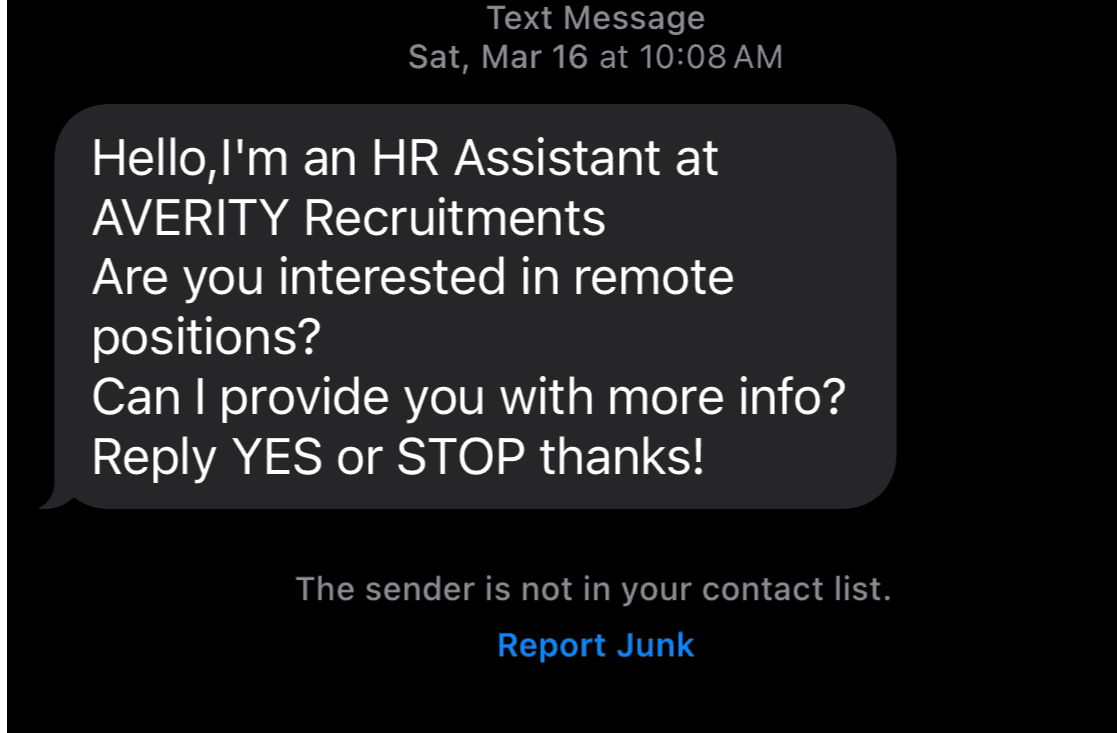Fake Job Recruitment Scams
Be cautious of unsolicited job offers via text. Learn how to spot recruitment scams!

The Scenario
Scammers often impersonate legitimate companies or recruitment agencies, offering fake job positions to lure victims into sharing personal information or paying for fraudulent services. This type of scam typically involves an unsolicited text message, claiming a job opportunity with high pay or remote working options. Below is an example of a scam recruitment text message, where the sender claims to be from a recruitment agency. They encourage the recipient to reply to gather more information. Beware of these scams as they are designed to extract personal details or phish for information.
Critical Warning
Red Flags to Watch For
📩 Unsolicited job offer: If you didn’t apply for a job, receiving an offer out of the blue is a red flag.
⚠️ Pressure to respond quickly: Scammers use urgency to prevent you from thinking the offer through.
📋 Generic language: Scammers avoid personalized details, often using terms like “remote positions” or “work from home” without specifying the company.
📝 Unprofessional language or grammar mistakes: Legitimate companies use clear and professional communication.
🚫 Requests for personal information: Never share personal information, such as Social Security numbers, bank details, or other sensitive information, over text messages.
How to Protect Yourself
Verify the sender's identity by researching the company and contacting them directly through official channels.
Never share sensitive personal information through text messages or email without verifying the job offer.
Block and report suspicious messages to your phone service provider or to the Federal Trade Commission (FTC).